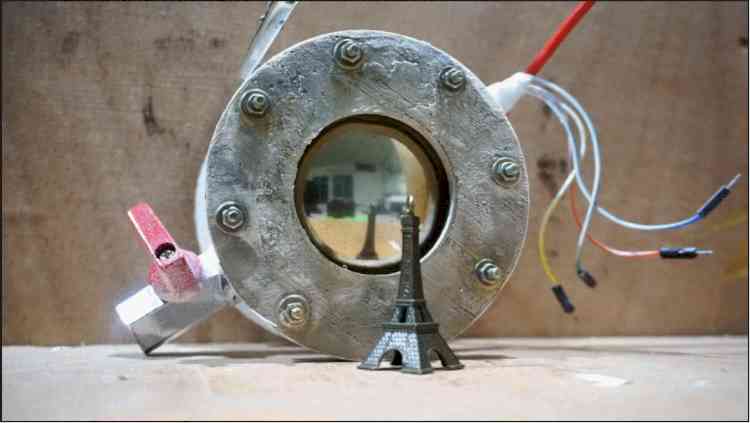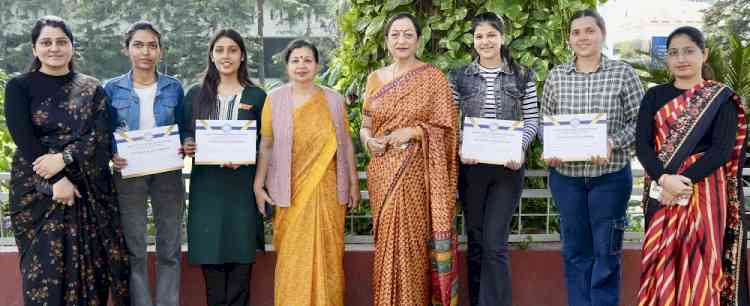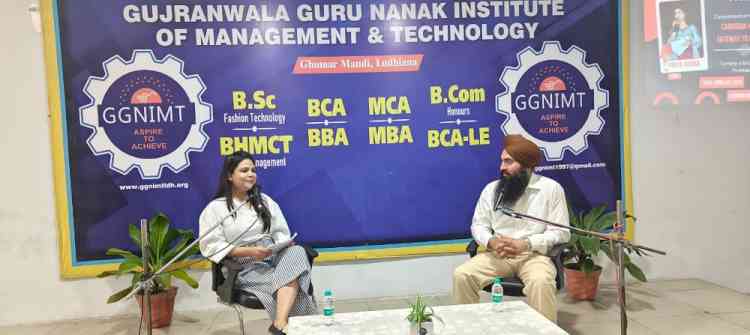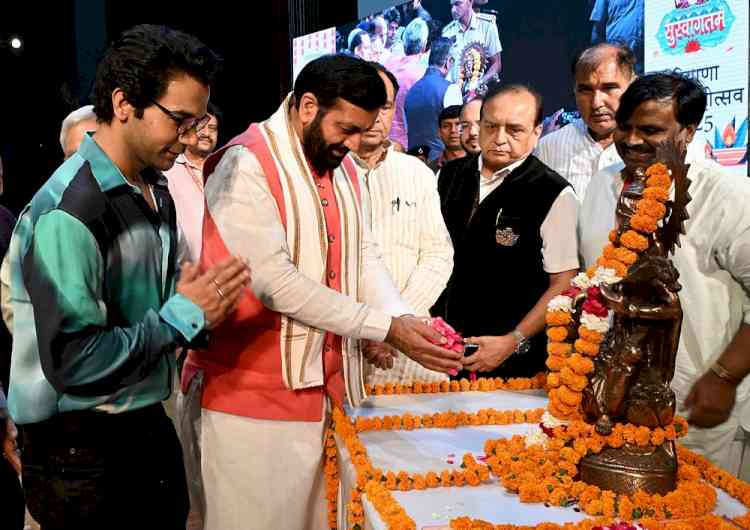Groundbreaking Research Unveils Dielectric Elastomer-Based Variable Focal Length Reflector
The Indian Institute of Technology Roorkee (IIT Roorkee) proudly announces the groundbreaking achievements of its alumnus Kartik Kashyap and his research colleagues, under the mentorship of Prof. Manish Joglekar, an Associate Professor in the Department of Mechanical and Industrial Engineering. Their innovative work has led to the development of a Dielectric Elastomer-Based Variable Focal Length Reflector, a unique technology revolutionizing the field of adaptive optics.

Roorkee, August 3, 2024: The Indian Institute of Technology Roorkee (IIT Roorkee) proudly announces the groundbreaking achievements of its alumnus Kartik Kashyap and his research colleagues, under the mentorship of Prof. Manish Joglekar, an Associate Professor in the Department of Mechanical and Industrial Engineering. Their innovative work has led to the development of a Dielectric Elastomer-Based Variable Focal Length Reflector, a unique technology revolutionizing the field of adaptive optics.
Kartik Kashyap, who is currently working with the US Air Force Research Laboratory and Ford Motor Company as a PhD student at Ohio State University, has spearheaded this cutting-edge research while being at IIT Roorkee. The research findings are reported in Smart Materials and Structures, a journal of high repute in the area of smart transaction technology. The work has also been granted an Indian patent, showcasing IIT Roorkee's commitment to fostering innovation and excellence in scientific research.
The Dielectric Elastomer-Based Variable Focal Length Reflector represents a significant advancement in soft adaptive optics. The innovative device demonstrates remarkable structural resilience, allowing for efficient management of applied pressure in both concave and convex reflector configurations. Moreover, its dynamic control over curvature through the adjustment of electric potential enables precise tuning of the focal length, making it ideal for applications requiring dynamic focusing or beam manipulation in optical systems.
A notable aspect of this research lies in the fabrication of the reflective membrane by sputter-depositing silver metal onto the dielectric membrane. This method offers enhanced control and precision in shaping the reflective surface. Prof. Ramesh Chandra at the Institute Instrumentation Center, IIT Roorkee, provided invaluable support in this collaborative research.
Several innovative technologies related to soft minimum energy structures, biomimetic flapping wings, and control surfaces have been investigated and tested successfully at the Active Materials and Ultrasonics Laboratory, led by Prof. Manish Joglekar. The research on variable focal length curvature was financially supported by the Science and Engineering Research Board, Government of India. The other team members involved in this research include Dr. Nitesh Arora, Dr. Ajay Kumar, Dr. Pramod Kumar, Mr. Chinmay Jivani, Mr. Yamnesh Agrawal, and Prof. Atul Sharma (IITJ); all alumni of the Institute and the laboratory.
"At IIT Roorkee, we are committed to fostering a culture of innovation and excellence. The groundbreaking research led by Kartik Kashyap and his team on the Dielectric Elastomer-Based Variable Focal Length Reflector exemplifies our dedication to pushing the boundaries of scientific knowledge. This revolutionary advancement in adaptive optics not only showcases the ingenuity of our researchers but also highlights the collaborative spirit and cutting-edge capabilities of our institution. We are proud of their achievements and confident that their work will have a lasting impact on the field of optics and beyond." said, Prof. K.K. Pant, Director, IIT Roorkee.
The innovative breakthrough achieved by Kartik Kashyap and the team exemplifies IIT Roorkee's commitment to pushing the boundaries of scientific knowledge and its impact on society. The institution takes pride in nurturing talent, fostering a culture of innovation, and shaping the future of technology.


 City Air News
City Air News 








